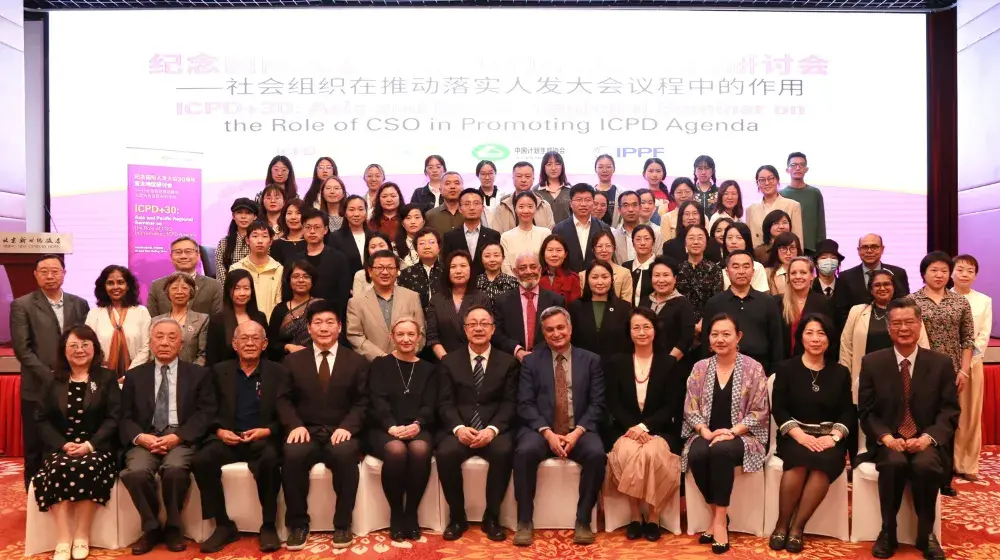Beijing— On World AIDS Day, UNFPA China supported an event at Tsinghua University in which more student representatives from more than 20 universities in Beijing participated. Organized by the China Family Planning Association and Beijing Family Planning Association, the event took place to mark World AIDS 2012. University students made pledges to help eliminate HIV and improve HIV awareness through popular social media. Ms. Zeljka Mudrovcic, Deputy Representative of UNFPA China addressed the event, highlighting the need to promote youth-friendly sexual and reproductive health information and services.
Globally, there are 1.8 billion people aged 10-24 years old. Young people are particularly vulnerable to HIV infection for social, political, cultural, biological and economic reasons. Some 2,400 new HIV infections occur among young people 15-24 years old every day. An estimated five million young people are living with HIV worldwide. In 2011, young people accounted for 40 per cent of all new adult HIV infections.
China is home to 302 million people aged 10-24, accounting for 23 per cent of the total population. With China's rapid development and changing social values, young people's attitudes towards premarital behavior are also changing. The latest data from the Ministry of Health showed that from January to October in 2012, there are nearly 10,000 newly reported cases of HIV among young people aged 15-24, an increase of 12.8 per cent compared to the same period in 2011. With support from UNFPA and the National Working Committee on Children and Women, the First National Survey on Access and Utilization of Sexual and Reproductive Health Services by Youth conducted by Peking University revealed that although more than 95 per cent of Chinese youth had heard of HIV, only 14.3 per cent of them could answer all five HIV-related questions about awareness and knowledge on HIV prevention.
In China, UNFPA has been working on youth sexual and reproductive health issues with a particular emphasis on youth participation. “Young people must be at the table when it comes to designing, implementation, monitoring and evaluation of policies, services and programmes on HIV prevention among young people. Young people have unique knowledge about and understanding of their situations and are social actors with skills and capacities that can bring about constructive resolutions to their own problems,” said Ms. Zeljka Mudrovcic. Ms. Mudrovcic encouraged students present at the event to be active citizens in promoting HIV prevention messages among their peers through social media and other means.
By Zhou Ying





